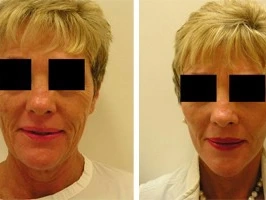Undergoing a facelift is a significant decision that involves careful consideration and preparation. Equally important is understanding and following the post-operative care instructions provided by your facelift clinic. Proper care after the surgery can significantly impact your recovery process and the final results. Here’s a comprehensive guide to post-operative care as recommended by facelift clinic in oman to ensure a smooth and effective recovery.
1. Immediate Post-Operative Care
a. Rest and Recovery: After your facelift surgery, it’s crucial to prioritize rest. Your body needs time to heal, so make sure to get plenty of sleep and avoid strenuous activities. Resting will help your body focus its energy on the healing process.
b. Head Elevation: Keeping your head elevated, even while sleeping, can help reduce swelling and bruising. Use extra pillows to prop up your head and avoid lying flat. This position helps improve blood circulation and minimizes fluid accumulation in the surgical area.
c. Ice Packs: Applying ice packs to your face can help manage swelling and discomfort. Make sure to wrap the ice packs in a cloth to avoid direct contact with your skin, which can cause damage. Use them for 15-20 minutes at a time, with intervals to prevent frostbite.
2. Managing Pain and Discomfort
a. Pain Medication: Your surgeon will prescribe pain medication to manage any discomfort you experience post-surgery. Follow the instructions carefully and take the medication as directed. If you experience any unusual or severe pain, contact your clinic immediately.
b. Avoid Aspirin and NSAIDs: Avoid taking aspirin or non-steroidal anti-inflammatory drugs (NSAIDs) unless prescribed by your surgeon. These medications can increase the risk of bleeding and may interfere with your recovery.
3. Wound Care and Hygiene
a. Keeping the Area Clean: Maintaining cleanliness around the surgical area is essential to prevent infection. Gently clean the area with a mild, non-alcoholic cleanser as recommended by your clinic. Avoid scrubbing or rubbing the area to prevent irritation.
b. Avoiding Moisture: Keep the surgical area dry, especially in the initial days after surgery. Moisture can increase the risk of infection and interfere with the healing process. Avoid washing your face directly with water; use a damp cloth if necessary.
c. Dressings and Sutures: Your surgeon will provide specific instructions on how to care for any dressings or sutures. Follow these instructions carefully to ensure proper healing. If you notice any unusual signs, such as excessive bleeding or unusual discharge, contact your clinic.
4. Activity Restrictions
a. Avoiding Strenuous Activities: Refrain from engaging in strenuous activities or heavy lifting for several weeks after surgery. Physical exertion can increase blood pressure and strain the healing tissues, potentially leading to complications.
b. Gentle Movements: When resuming activities, start with gentle movements. Avoid activities that may stretch or strain your facial muscles. Gradually ease back into your routine based on your surgeon’s recommendations.
5. Nutrition and Hydration
a. Staying Hydrated: Proper hydration is vital for the healing process. Drink plenty of water to keep your body hydrated and support recovery. Avoid alcohol and caffeine, as they can dehydrate your body and affect the healing process.
b. Balanced Diet: Eating a balanced diet rich in vitamins and minerals can aid in your recovery. Incorporate foods high in protein, vitamins C and K, and other nutrients that support skin health and wound healing. Avoid salty and spicy foods, as they may contribute to swelling.
6. Monitoring and Follow-Up
a. Attending Follow-Up Appointments: Your clinic will schedule follow-up appointments to monitor your recovery and assess the results of your facelift. It’s essential to attend these appointments to ensure that your healing is progressing as expected.
b. Reporting Concerns: If you experience any unusual symptoms, such as severe pain, excessive swelling, or signs of infection, contact your clinic immediately. Early intervention can help address any issues before they become more serious.
7. Protecting Your Skin
a. Sun Protection: Protecting your skin from the sun is crucial during your recovery. UV exposure can cause hyperpigmentation and affect the results of your facelift. Use a broad-spectrum sunscreen with a high SPF and wear a wide-brimmed hat when outdoors.
b. Avoiding Heat: Avoid exposing your face to heat sources, such as saunas or hot tubs, as they can increase swelling and affect the healing process. Stick to lukewarm water when washing your face and avoid hot environments.
8. Psychological Well-being
a. Managing Expectations: It’s normal to experience a range of emotions during the recovery period. Understand that the healing process takes time, and your final results will gradually become more apparent. Be patient and realistic about the changes you’ll see in your appearance.
b. Seeking Support: If you find yourself feeling anxious or stressed about your recovery, don’t hesitate to seek support from friends, family, or a mental health professional. Emotional well-being is an important aspect of overall recovery.
9. Long-Term Care
a. Maintaining a Healthy Lifestyle: Continuing to follow a healthy lifestyle will support your long-term results. This includes maintaining a balanced diet, staying hydrated, exercising regularly, and avoiding habits that can negatively impact your skin, such as smoking.
b. Routine Skincare: Adopt a skincare routine that includes gentle cleansing, moisturizing, and sun protection to maintain the health and appearance of your skin. Consult with your clinic for personalized recommendations on skincare products suitable for your post-facelift needs.
Conclusion
Post-operative care is a critical component of a successful facelift procedure. By following the recommendations provided by your facelift clinic and paying attention to your body’s needs, you can ensure a smoother recovery and achieve the best possible results. Always remember to communicate openly with your surgeon and clinic staff if you have any concerns or questions during your recovery. Your commitment to proper care will help you enjoy the full benefits of your facelift and achieve a refreshed, rejuvenated appearance.


